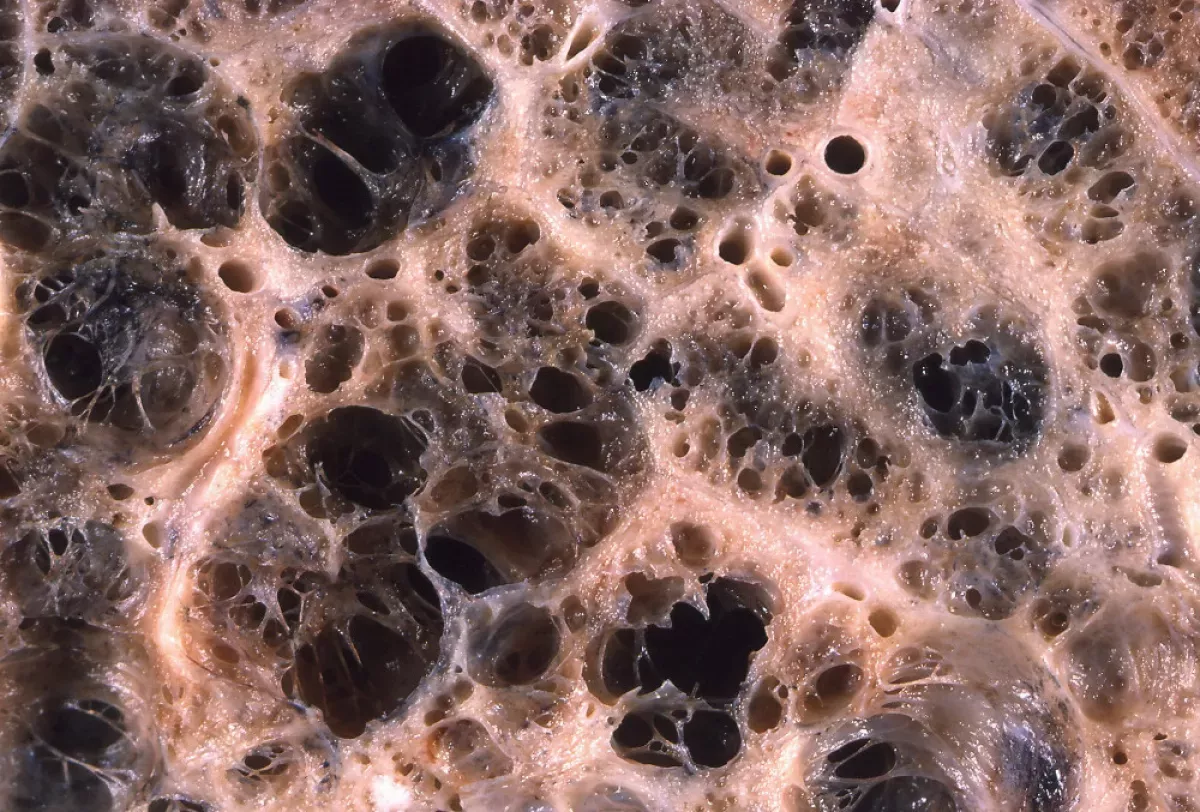Emphysema is characterized by air-filled enlargements in body tissues. While it can occur in various tissues, the term "emphysema" most commonly refers to a lung condition called pulmonary emphysema. This specific type of emphysema involves the irreversible expansion of the alveoli, which are tiny air sacs in the lungs responsible for gas exchange.
1959: Formal Definitions of Emphysema and Chronic Bronchitis
The CIBA guest symposium in 1959 marked the formal definition of the terms "emphysema" and "chronic bronchitis," providing a clearer understanding and distinction between these respiratory conditions.
1962: American Thoracic Society Committee Meeting on Diagnostic Standards
The American Thoracic Society further solidified the definitions of emphysema and chronic bronchitis during their Committee meeting on Diagnostic Standards in 1962, contributing to the standardization of these terms in the medical community.
2016: Emphysema Mortality in the United States
In 2016, the United States recorded 6,977 deaths attributed to emphysema, translating to a rate of 2.2 deaths for every 100,000 individuals.
2018: Study on Combined Effects of Tobacco and Cannabis Smoking
A 2018 research review investigated the potential synergistic effects of tobacco and cannabis smoking. The study revealed a possible cumulative toxic effect that could contribute to the development of emphysema and spontaneous pneumothorax.
Mentioned in this timeline
The United States of America is a federal republic located...
Trending

7 months ago Potential NBA Trades: Dillon Brooks, DeMar DeRozan, and the Rockets' Draft Pick

9 months ago Dyson Daniels Wins 2024-25 NBA Most Improved Player; Zubac, Cunningham Runners-Up

5 months ago NBA and NBPA support betting limitations; is Michael Porter Jr. a problem?

9 months ago Brook Lopez's Role in Bucks-Pacers Series Questioned; Workload Reduced in NBA Playoffs

9 months ago Josh Gad Celebrates Spring with GWAR, Big Gretch; Tubi Greenlights YA Films.

7 months ago Sam Rockwell discusses 'White Lotus' monologue, leopard briefs, and new Martin McDonagh reunion.
Popular

Thomas Douglas Homan is an American law enforcement officer who...

William Franklin Graham III commonly known as Franklin Graham is...

XXXTentacion born Jahseh Dwayne Ricardo Onfroy was a controversial yet...

Jupiter is the fifth and largest planet from the Sun...

Instagram is a photo and video-sharing social networking service owned...

KFC or Kentucky Fried Chicken is an American fast-food chain...
